HR Studio Podcast Episode 81: How the Language of Leadership Can Make You a Better Leader
Krister Ungerböck, a keynote speaker, CEO Coach, and global expert in the Language of Leadership joins us this week to share his personal career journey and leadership lessons learned. This podcast originally appeared on HR Studio Podcast with A.J. O’Conner. To listen to the full interview, visit HR Studio Podcast.
He shares cultural differences between leading in Europe versus America, drawing a parallel between speaking in a foreign language and effective communication in one’s native language. Krister highlights how generational differences impact leadership, with powerful advice for HR leaders on being more effective by listening more and offering solutions less. He proposes the Magic Management 8-Ball Challenge as a tool to help. Tune in to hear Krister discuss emotional intelligence, soft skills, and his personal journey to becoming a better leader.
Prior to retiring at age 42, Krister was the award-winning CEO of one of the largest family-owned software companies in the world. His expertise in the language of leadership is based upon his unique experience as a global CEO leading teams in three languages while observing and doing business with executives in over 40 countries, building businesses in six and living in three. As a corporate keynote speaker, Krister is passionate about sharing the secrets that his team used to win five consecutive Top Workplace awards and achieve remarkable employee engagement levels of 99.3%. His upcoming book, The Language of Leadership: Words to Transform How We Lead, Live and Love, is planned for release in the Fall of 2019.
Key Learnings From This Episode
A pivotal moment in Krister’s career trajectory. Krister did not learn his most profound insights while he was the CEO for one of the world’s largest family-owned software companies, but rather while signing up for a gym membership at the YMCA. He was asked for his emergency contact, which brought him to tears. He was 42 and focused on work, building a company with hundreds of employees in eight countries. He had just initiated a ‘business divorce’ with his partners (his father and brothers) and two weeks later, his wife walked out. He had no one in his life as an emergency contact. He had been reading business bestsellers since he was 12 years old, which clearly worked in building the successful business. He was mastering all the tools of business leadership, but he could not convince his own family to follow him. In asking himself where he went wrong, Krister began a journey in which he discovered some surprising insights about communication and leadership.
Experiences that businesspeople would typically never do. While interviewing someone for his book Krister asked, ‘so it is like a race car going from 0 to 200 mph, because I’m not really prepared for it.’ The interviewee said, ‘no, it would really be like being pulled behind a race car naked through bramble weeds from 0 to 200 mph. And Krister thought, ‘that sounds like something I need to do.’
How learning languages helped to teach leadership skills. Krister learned a new language of leadership that had eluded him for many years and he was trying to figure out how to teach it to others. In the early 2000’s, he learned French and German while opening businesses in France and Germany, hiring the best business French teacher. He applied the shortcuts he was taught in learning languages to this new language of leadership, teaching people practical tools for emotional intelligence and the practice of asking better questions.
Differences in leading in the US versus Germany and France.There were two major learnings:
In the US, you give someone a project and then catch up in 2-3 days to ensure he/she is on track, checking in early and often. Germans want you to give them a project, and they will deliver on the date that you specified. It is the total opposite.
People have a different personality when they speak a different language. Krister was an engineer and very analytical, and sometimes had difficulty with empathy and emotional intelligence, even though he understood it intellectually. He always felt that he needed to change his personality. Over a few years, he discovered a language of emotional intelligence and thought, ‘do we really need to change ourselves?’
HR leaders sometimes think they need to change a person who is not performing. Often, we need to just help them change their words. When you learn a new language, you have to think a lot about your words, and it can be very painful to have a conversation because you have to speak very slowly. If we can be that present about choosing our words in our native language, it can improve our language patterns and improve our ability to communicate effectively.
How does the language of leadership apply to the next generation of HR leaders? Leaders who are in charge today are generally in their 50s and 60s and they were trained by the leaders who were from the generation before them, and those leaders grew up in the war. The model was military leadership. At the time, women were not in the workforce, and millennials, who desire an environment of more positive rather than negative feedback, did not exist. The workforce has changed significantly. With the language of leadership, the desire was to create one language, both professionally and personally. Once Krister found language patterns that worked equally well in both settings, he wanted to help people master just one. Practicing one language helps people communicate better. With the way the workforce is evolving, people are looking for leaders who are stronger on soft skills and are not coming from a military basis of leadership. These tools ultimately helped make Krister a better father and partner.
360 feedback improved professional and family/personal environments. Krister thought the negative behaviors in which he was engaging were isolated to work, but he discovered they carried over to his personal life as well. Although the words can sometimes be different, the underlying beliefs and behavior (e.g., constant criticism) were leaking into his personal life. By changing the behaviors, it had a powerful impact on his personal relationships and life also.
How can leaders be more effective? Leaders often lead with ‘the language of expertise’, meaning they lead with solutions because they think their primary value is to provide solutions. It is very seductive to be the person who gives all the answers, and it is very seductive for the people who want to shut down at 5:00 pm and not think about work until the next day. These people are outsourcing the problem-solving to their bosses. However, the employees who tend to be least motivated by the language of expertise are the top performers who want to come up with the answers themselves. Leaders inadvertently draw closer those who rely on their leadership to solve problems for them while pushing away people who want to solve issues themselves.
Marshall Rosenberg, a peace activist, and psychologist had a quote: ‘Listen for people’s needs, not their words.’Leaders who are constantly giving out advice and solutions to people may be fulfilling their own need of validation or self-esteem. If we look at ourselves and others with that lens, it can be a powerful way of understanding people’s behaviors.
There is a solution for this called the Magic Management 8-Ball Challenge. It is an experiment to help a leader convince him/herself that asking questions can be more powerful than giving answers. There are 15 questions, and before going into a meeting with their team, a leader randomly selects 3-5 of the questions and commits to asking the questions and letting the team call out some solutions. It takes less mental energy for the leader to just ask questions and not try to solve the problem. Leaders also find they have more productive meetings and learn more from their people because they are shifting their perspective from ‘my job is to give solutions’ to ‘my job is to ask powerful questions that lead other people to solutions’.
The Socratic method of asking questions is to reveal. Leaders ask people questions that will lead to the solution the leader already had in mind. Instead, ask open questions to lead people to their own solutions. Start questions with ‘what’ or ‘how’. Don’t ‘lead’ by asking ‘are you considering ...’ This leads to the solution the leader wants. Go in with an open mind.
Advice to his younger self or to an aspiring HR leader? Krister’s advice is to lead with questions more than answers. Learn the language of emotional intelligence, although Krister finds HR tends to be more emotionally intelligent than others. Conduct anonymous 360 surveys every 3-5 years or within 3 to 6 months after the composition of someone’s team has changed to get feedback on blind spots and to head off anything negative that may be creeping in.


